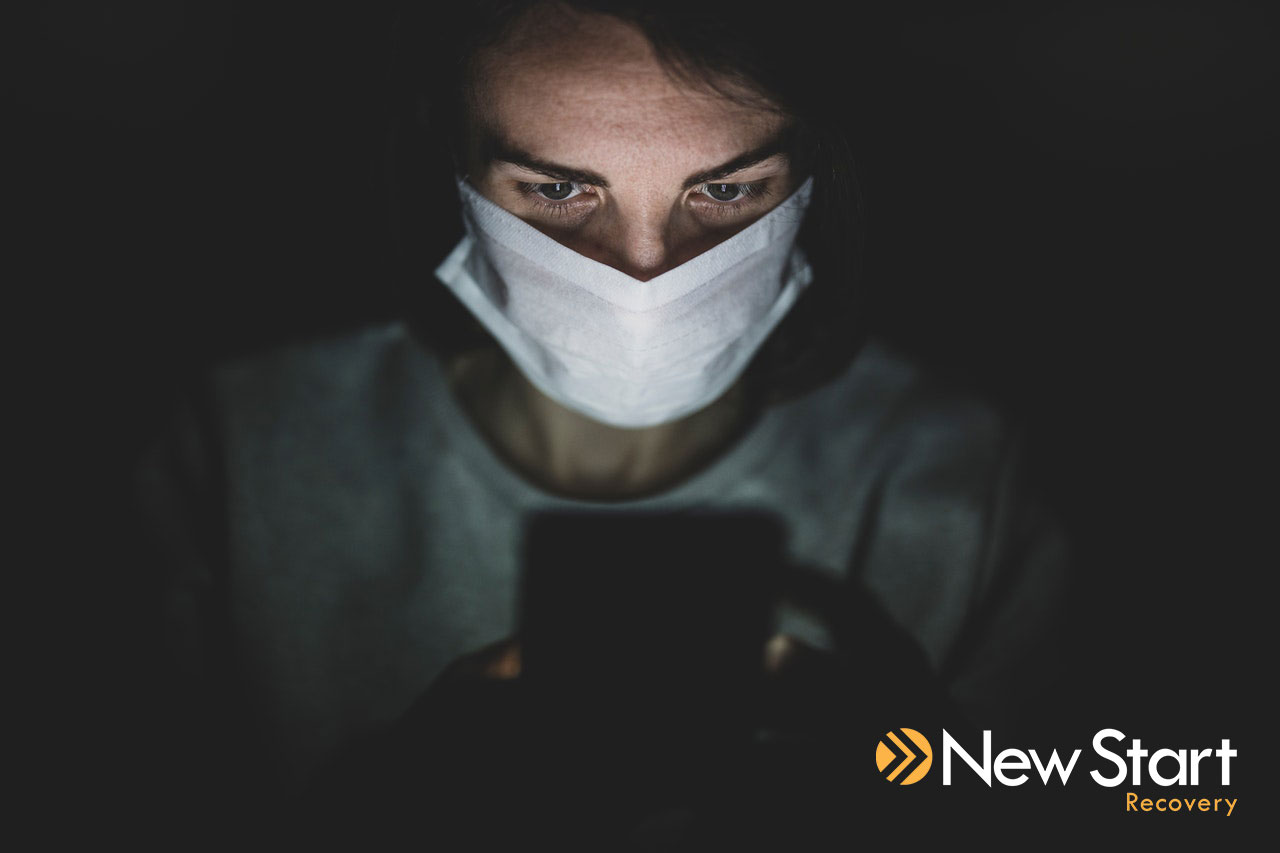It’s getting closer to the end of 2020, and COVID is still raging stronger than we expected back when this all started back in March. Cases decline enough for us to garner some hope, then peak again out of nowhere to steal that hope away again. As this cycle continues, people are stuck in the painful uncertainty of not knowing when to expect a return to normalcy. This limbo affects the psyche of everyone, but individuals struggling with substance abuse (either past or present) feel the acute isolation in a way that compromises their wellbeing more than the average person. If there’s one thing about this ongoing pandemic that throws recovering addicts and alcoholics off their game, it’s this: Missing consistent face-to-face accountability for your sobriety leaves a lot more room for messing up. It doesn’t seem as big of a deal to relapse when you don’t have to face guilt in front of your AA group afterward. So, is it really that big of a deal to relapse on the sly? Does a COVID relapse, when other people are hurting over their own problems, count enough to tell anyone?

Sobriety Is not a Song & Dance
One of the main pitfalls of spending a long time in recovery is the sense that, “Hey, people seem to respect me for my choice to stay sober, so I need to keep maintaining and sharing the image that I’m doing okay.” Chasing hollow praises over sobriety from friends and from social media inevitably ends up in disappointment. Though it feels good initially to receive some recognition for turning your life around, the shallow affirmation of likes, follows, and “keep it up!”s do not drive any form of real wellness home.
Sobriety is not a performance. The purpose of a clean and sober lifestyle is to improve your own wellbeing and maintain a healthy state of mind. The shame and embarrassment many people in recovery feel after relapsing is a natural reaction. Those feelings should be examined and earnestly processed with people and methods that build your overall sense of wellbeing. This can be anything from talking to a therapist, to seeking group meetings (possibly streamed meetings), or going back to the tools that rehab teaches people in recovery. As the adage goes regarding working a program, “It works if you work it.” This saying comes from Alcoholics Anonymous, but it applies to other program structures such as WRAP and the Matrix Model.
“Everyone’s Miserable”: Not an Excuse for COVID Relapse

Reaching out is tough during a pandemic. Everyone’s isolated and feels like they have their own problems to deal with. The lack of overall social interaction grates on even the most independent among us. So it makes sense to be hesitant and have thoughts along the line of, “Everyone has their own problems to deal with right now. It’s not my place to add my COVID relapse to their plate, so I’ll try to handle this on my own.” Unfortunately, that line of thinking tends to extend a relapse into active using rather than taking steps to get back on track.
While the COVID pandemic has changed a lot, it has not changed the basic availability of recovery resources. They may have to be modified to keep everyone safe. But making these types of adjustments is one of the cornerstones of a clean and sober lifestyle:
“One of the primary differences between alcoholics and nonalcoholics is that nonalcoholics change their behavior to meet their goals and alcoholics change their goals to meet their behaviors.” – The Big Book (Alcoholics Anonymous)
Addicts in recovery must be open to new behaviors and changes in routine in order to achieve their goals. Not the other way around. Though COVID relapse may seem more difficult to get help for due to overall increased isolation, it is not insurmountable. Your sobriety and wellness still matter even in the midst of a pandemic, and help is out there.
If you or a loved one is seeking help for a substance abuse problem or COVID relapse, our addiction counselors are available 24/7 by phone: 714-455-3409

